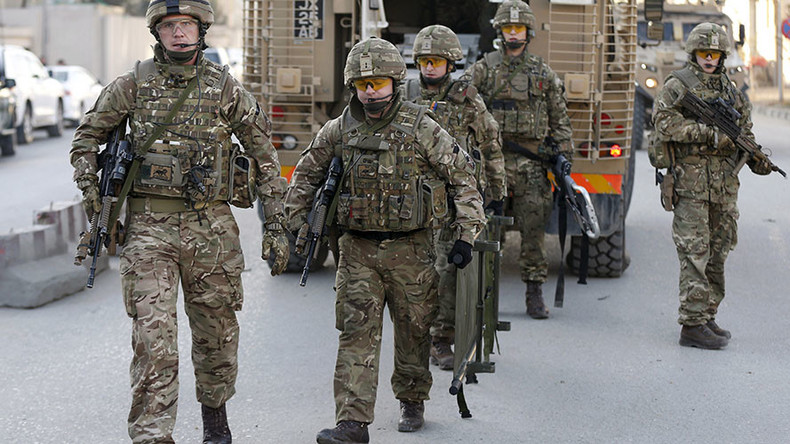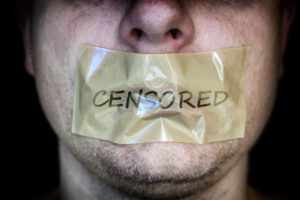The government has suggested the UK could be subject to mandatory curfews and lockdowns, with the military being deployed to enforce the lockdowns.
Up to 20,000 troops are on standby as part of a “covid support force” which could set up makeshift hospitals in vacant hotels and help police officers in their duties as the coronavirus escalates.
The new force — made up of 10,000 military personnel who are regularly deployed to civilian activities, plus an extra 10,000 in response to the Covid-19 pandemic — has been placed at “high readiness”.
Head of the Armed Forces, General Sir Nicholas Carter, wrote: “The indications are that this disease will spike around late May and early June. We are prepared for our collective posture to be on operational footing by mid-April, recognising this could endure for six months or so.”
However, parts of the note appeared to suggest that troops could be called upon to enforce any curfews and prevent people from panic-buying.
If this sounds just a little bit like the beginnings of martial law, you’d be right.
So far, the government has simply issued advice telling the general public to self-isolate.
Self-isolate simply means to keep away from crowds and avoid events. However, going for a walk by yourself falls within the guidelines.
But as sensationalist media headlines continue to ramp up panic over people heading to parks and being out in the open air, Prime Minister Boris Johnson recently announced he would not rule out more stringent measures to force people to stay in their homes.
A partial shutdown is already in place, with many cafes, pubs, restaurants and movie theatres being ordered to close.
When asked again whether the Government would enforce measures, Mr Johnson said they would consider all options.
He added: “We don’t intend to place restrictions like that on people in this country. But we will rule nothing out. We do not rule out taking further and faster measures where it is necessary to suppress the peak of the virus.”
However, the UK government is considering a new raft of measures which include giving the police powers to arbitrarily arrest anyone who is in breach of the curfew and who they suspect may have the virus. In other words, if you don’t detain yourself, they will detain you. Furthermore, if a coroner suspects someone has died of coronavirus, there will be no inquest.
While the military has previously helped in national crises such as flooding and the foot-and-mouth outbreak in 2001, it is highly unusual for troops to be drafted into civilian support at this scale. The Covid Support Force is expected to play a role in enabling police to secure the streets in the event of a lockdown, which could be triggered in London — where the number of coronavirus cases is highest.
Other countries have already launched curfews and complete lockdowns.
However, opponents to the law have pointed out that while there does need to be a certain level of caution to curtail the spread of coronavirus, which can kill people, each year there are already many deaths, especially among the old, from complications of flu leading to pneumonia. Indeed, even young, otherwise healthy people have been known to die of the flu.
The DHSC notes that many of those who die from these diseases have underlying health conditions, as do almost all the victims of coronavirus so far, here and elsewhere. As the experienced and knowledgeable doctor who writes under the pseudonym ‘MD’ in the magazine Private Eye wrote at the start of the panic: “In the winter of 2017-18, more than 50,000 excess deaths occurred in England and Wales, largely unnoticed.”
EDITOR’S NOTE:
Some have predicted that the coronavirus could impact 80% of the UK population.
A leaked government document has suggested up to 500,000 people could die from coronavirus if the disease is able to infect up to 80 per cent of the country.
While the Department of Health and Social Care said it did not expect the scenario to happen, the briefing to ministers, leaked to The Sun, said “the reasonable worst case” was for four fifths of the country to succumb to the virus.
The first Sars outbreak of 2003 was reported as having ‘a 25 per cent chance of killing tens of millions’ and being ‘worse than Aids’. This prediction was not realized.
There were similar warnings in 2009, that swine flu could kill 65,000. It did not. The Council of Europe described the hyping of the 2009 pandemic as ‘one of the great medical scandals of the century’.
However, that is not to make light of a serious disease. In fact, it is the contrary. Even the ordinary flu has been known to kill thousands of people every year. So there is always a need to eat healthily, avoid touching public surfaces and generally take steps to safeguard our health. After all, the possibility of biowarfare, new and deadly viruses and radiation is ever present. And it is also true that the Government could always do more to educate people about how diseases spread and how they can take measures to protect themselves. In the event of a pandemic, it makes sense to close borders, and limit events. It makes sense to protect the population. But at what cost?















Follow Us!